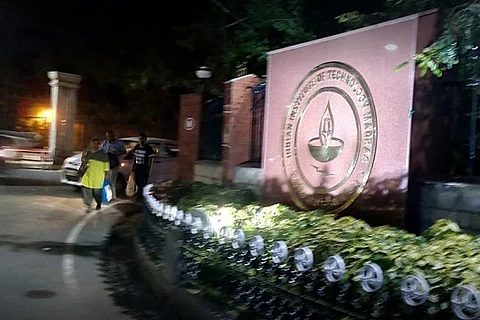

“IIT Madras does not discriminate based on caste and religious lines,” read Union Education Minister Dharnandra Pradhan’s response to a question in parliament. Multiple allegations of caste-based discrimination that have emerged from the institution. The minister was responding to a question posed by DMK Parliamentary leader TR Baalu who asked “whether the government is aware of the allegations” and what action is going to be taken.
Just earlier in July, Vipin P Veetil, an assistant professor had resigned from IIT Madras citing caste-based discrimination. Vipin who taught economics in the Humanities Department wrote a letter to his colleagues, and added that he was shifting to teach at another college.
In the backdrop of this controversy, IIT Madras’s independent student body, ChintaBAR, too issued a statement which accused the institute of violating reservation rules. ChintaBAR’s statement alleged that IIT Madras violated the SC/ST admission reservation rules and demanded a support system for students from the SC/ST community which is absent in the institute. This statement by the student body directly contradicts the response offered by the Union Education Minister.
The Union Education Minister also added “through its students outreach programme, IIT Madras ensures the wellbeing of every student and research scholar. The institutional counselling is being provided for the college’s students and research scholars on a 24-hour basis.”
However, over the years, several deaths and sudden resignations have struck IIT, with multiple allegations of caste and religion-based discrimination.
In November 2019, Fathima Latheef, a young humanities student, killed herself inside her hostel room in IIT Madras. Hailing from Kollam in Kerala, Fathima was a first-year student of the humanities stream (five-year integrated MA programme) in IIT Madras. In her letter, she mentioned three professors including Sudarshan Padmanabhan, and stated that they had harassed her while she studied in the campus. Following her death, several allegations of religion-based discrimination emerged in the campus. The probe in Fathima’s case was later taken over by the Crime Branch.